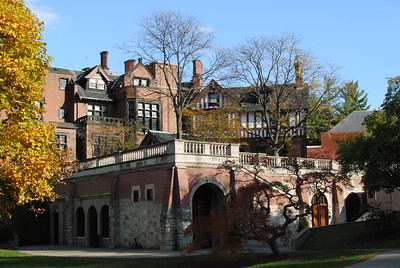Chatham University is a private, non-profit institution in Pittsburgh, PA. Founded in 1869 as a women’s college, Chatham began enrolling men in 2015. The university actually has more graduate students than undergrads. It also has a budget deficit of about $12M.
Last September, Chatham president David Finegold announced that he would be stepping down at the end of the 2022-23 fiscal year. The Board of Trustees dutifully interviewed and selected a replacement candidate, Dr. Rhonda Phillips, who was supposed to assume control of the university on July 1, 2023.
However, in May, the Board Chair, David Hall, announced to the community that Finegold would be stepping away from the day-to-day operations of the University, effective immediately. The following month, the Board announced that Chatham University had “an increasing budget gap,” which would need to be fully addressed over two years, and that the Board had authorized Phillips to lead a reorganization of the university. (At this point, Phillips had not officially taken over as Chatham’s president.
The reorganization at Chatham has been neither pretty nor completely successful. To date, the university has instituted a 5% pay cut for faculty who make a base salary of more than $100,000 per year. Additionally, the school has reduced its employee retirement contributions from 8% to 3%. Additionally, the university will no longer offer healthcare insurance coverage to spouses of employees who have healthcare coverage available through their own employers.
As part of the reorganization, Phillips announced the departures of four Vice Presidents, including the VP of finance and administration; the VP of academic affairs; the VP of strategic planning and Title IX; and the VP of Advancement. Phillips’ recovery plan also included the termination of about 20 employees. The survivors on the university’s leadership team took a 10% pay cut.
Chatham University Board of Trustees was slow to act
As of now, those cuts have trimmed Chatham University’s expenses by about $6M. The team tasked with figuring out how big Chatham’s budget hole is believes they still need to find another $3M-$4M to cut in order to balance the books.
One faculty member who spoke to Public Source about Chatham’s financial problems directed her ire at the Chatham University Board. ”So I think a lot of us are angry with the board. Why didn’t they know?”
That’s an awesome question because members of an institution’s Board of Trustees are supposed to know.
If you look at the Chatham University Board of Trustees, you will see that it is comprised of 27 individuals, most of whom are alumni, and many of whom are in their 60’s, 70’s, and 80’s. At least some of Chatham’s board seats appear to have been given as gifts – possibly as an acknowledgment of a productive donor history.
The professor’s question about the Board is completely understandable. Board members are supposed to know what’s going on with an institution’s finances at all times. It seems highly unlikely that the VP of Finance failed to mention a $12M budget deficit at least once during the fiscal year. It seems more likely that Board of Trustees finally grasped (in May 2023) what they’d probably been told a number of times about the university’s finances in the past. (During this time, the university’s endowment dropped by… wait for it… $12M!) The Board undoubtedly authorized that transfer.
Chatham University’s situation underscores the pressing need for an engaged board that understands what they’re being told, asks questions, and holds people accountable. It’s what trustees are supposed to do. Bad things happen when they don’t.
Photo Credit: David Bennett , via Flickr


















